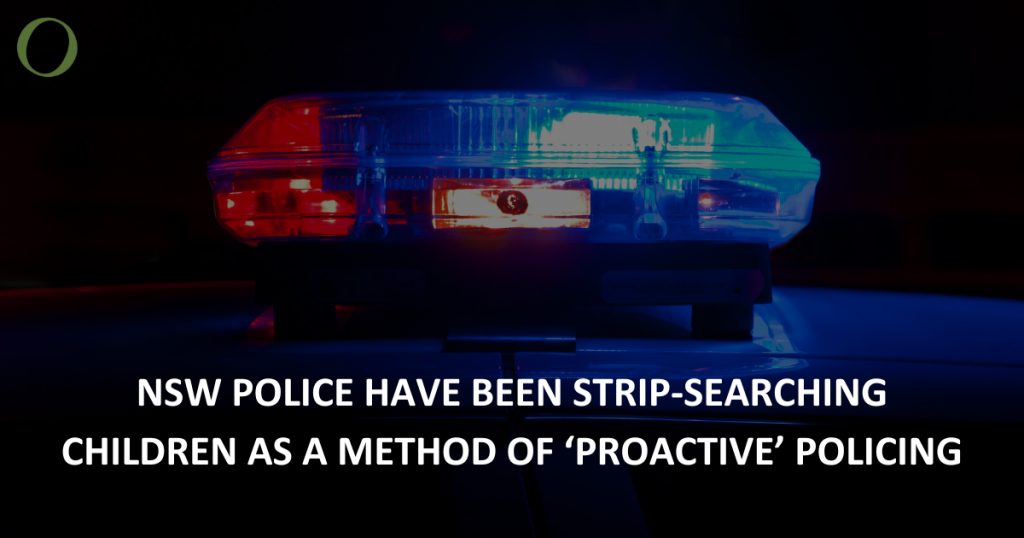
New South Wales Police strip-searched thousands during the pandemic suggesting they continue to misunderstand their own powers.
NSW Police carried out more than 4,400 strip-searches over two years since the start of the pandemic. They made over 100 searches on children.
This is despite continued findings against the NSWPF on their unlawful strip-searching practices.
Over 4000 strip-searched – even during lock down
Between July 2020 and May 2022, NSW Police strip-searched more than 4,400 people. The period covered multiple lockdowns – including the Delta wave which lasted over 100 days.
The number of searches is alarmingly high considering the lack of people on the streets.
Police are only meant to strip-search someone where the urgency and seriousness of the situation requires it.
Yet, NSW Police admitted to using the violating practice as a “proactive” policing strategy.
Children, First Nations people targeted by NSW Policing
In using these powers, NSW Police disproportionately targeted children and First Nations people.
Indigenous people made up 18% of all children searched. However in some areas, there was dramatic overrepresentation. In Dubbo, in the state’s central west, more than 50% of strip-searches were of Indigenous people.
More than 100 children eperienced strip-searches by NSW Police, including a 13-year-old child. First Nations people made up 10% of all strip-searches, despite comprising only 3.4% of the state’s population.
Damning report never addressed by Parliament
There were vague promises to overhaul strip-search policies after a damning report in 2020.
The Law Enforcement Conduct Commission (LECC) recommended changes to the legislation to clarify police powers.
This came after LECC discovered unlawful common practices including forcing people to squat or move their genitals. However, the report never received a formal response by the NSW Government.
Police claim strip-searches are ‘pro-active’ policing
The Law Enforcement (Powers and Responsibilities) Act 2005 (NSW) (‘LEPRA’) allow police to strip-search people who they reasonably suspect are concealing things such as weapons or firearms.
However, Police are using this power to proactively police the community.
NSW Police told The Guardian said that strip-searches were one of the “various proactive strategies” they use. This is for its “ongoing commitment to reducing crime and the fear of crime in the community”.
A spokesperson claimed powers “such as searches and move-on directions have been proven to significantly drive down crime,” including knife possession and armed robbery. This is despite data consistently showing NSW Police justify strip-searches based on suspected drug possession.
NSW Police strip-searched people to target low-level drug users
However, NSW Police are using the incredibly violating powers to target low-level drug users. In 2019, Principal Solicitor Peter O’Brien spoke to ABC Radio National about inappropriate use of strip-searches.
Dr Vicky Sentas said the response from NSW Police further outlined their misunderstanding of their powers.
Sentas co-authored the 2019 paper which found that the use of drug dogs helped to fuel massive increases in strip-searches.
“Strip searches should never be used as proactive crime prevention to deter future offending,” Dr Sentas said.
“Strip searches are meant to be a last resort only to be used in serious and urgent circumstances, like an emergency. It’s not surprising looking at the volume of strip-searches during the pandemic that NSW police see strip-searches as a proactive policing tool.”
Sarah is a civil solicitor who primarily practices in defamation, intentional torts against police, privacy and harassment.





